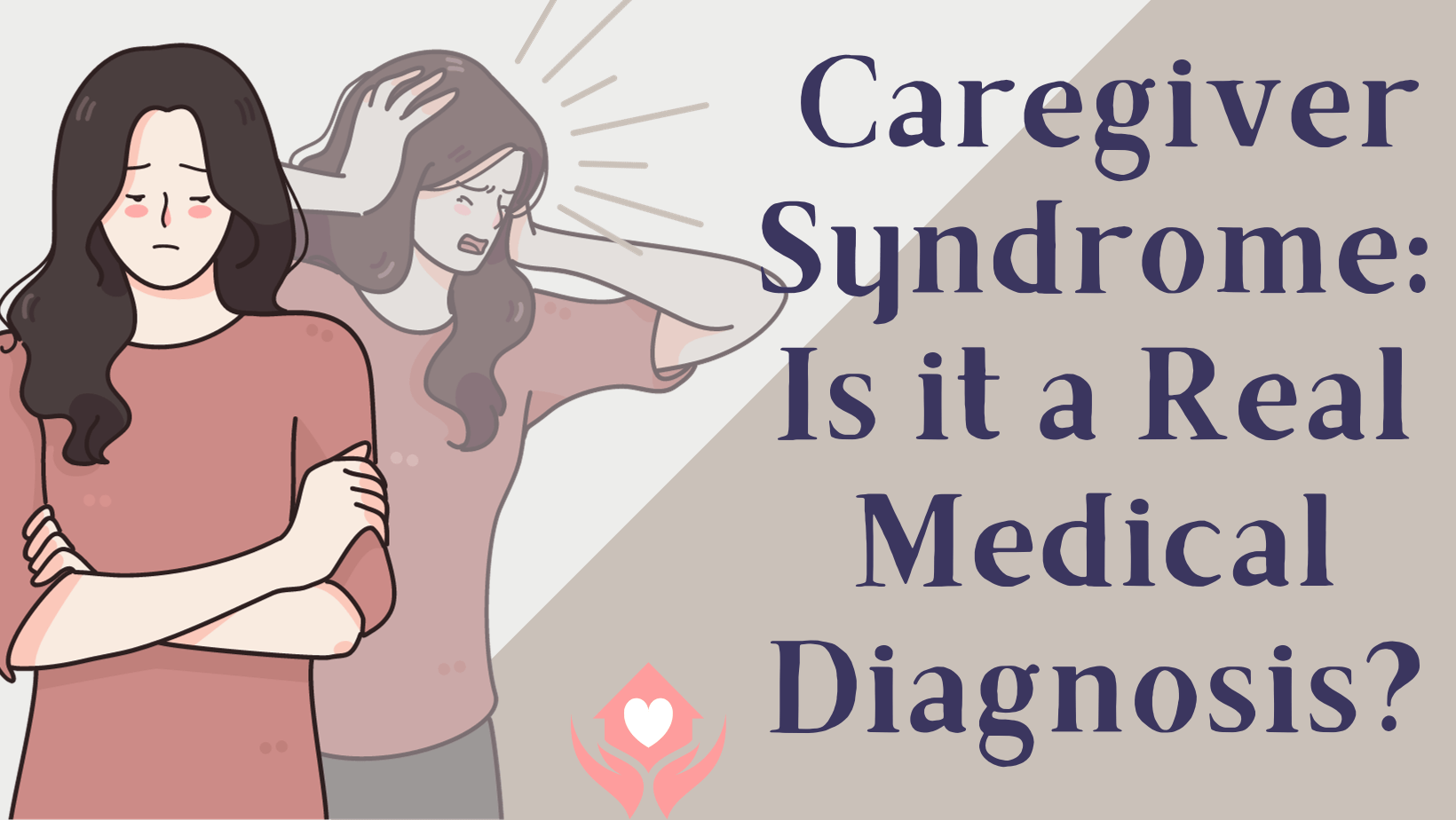
Caregiver Syndrome, also known as caregiver stress or caregiver burnout, is an emotional, physical, and mental exhaustion that often affects those who care for aging or chronically ill loved ones. Although not officially recognized as a medical diagnosis, it's a real and prevalent challenge that caregivers face. In this comprehensive guide, we will explore the causes of Caregiver Syndrome, its symptoms, and practical steps to address and prevent it.

Recognizing and Addressing the Signs of Caregiver Syndrome
Causes of Caregiver Stress
Caregiver stress can stem from a multitude of factors, often arising when caregivers prioritize their loved ones' needs at the expense of their own. Contributing factors include:
1. Neglecting Self-Care: Caregivers often forget to care for themselves as they focus solely on their loved ones' needs, leading to physical and emotional exhaustion.
2. Role Confusion: When caregivers have close relationships with those they care for, it can create role confusion, making it challenging to balance caregiving and personal roles.
3. Unrealistic Expectations: Unrealistic expectations about the impact of caregiving on the loved one's well-being can lead to disappointment and stress.
4. Self-Imposed Pressure: Caregivers may place excessive pressure on themselves due to their sense of responsibility for their family member's well-being.
5. External Demands: Other family members may impose unreasonable expectations on caregivers, adding to their burden.
6. Financial Stress: Limited financial resources can result in a lack of control and heightened stress for caregivers.
Symptoms of Caregiver Burnout
Recognizing the signs and symptoms of Caregiver Syndrome is crucial for timely intervention. Common indicators include:
1. Depression and Anxiety: Caregivers may experience feelings of sadness, anxiety, and hopelessness, often leading to social withdrawal.
2. Physical Toll: Physical symptoms can manifest as loss of appetite, weight changes, disrupted sleep patterns, and exhaustion.
3. Irritability: Caregivers may become irritable and express anger more frequently than usual.
4. Health Issues: Chronic caregiver stress can lead to health problems, including headaches, high blood pressure, diabetes, a weakened immune system, and more.
How to Address Caregiver Syndrome
Addressing Caregiver Syndrome is essential for the well-being of both the caregiver and their loved one. Here are practical steps to cope with and prevent Caregiver Syndrome:
1. Prioritize Your Health
- Visit a Physician: If you experience symptoms of caregiver stress, seek medical advice to address any potential health issues.
- Self-Care: Make your well-being a priority by practicing self-care through nutrition, exercise, and adequate rest.
2. Seek Support
- Support Groups: Join caregiver support groups to connect with others facing similar challenges and share experiences.
- Utilize Local Resources: Investigate local resources, such as respite care services, meal delivery programs, and caregiver support organizations.
3. Take Breaks
- Respite Care: Arrange for respite care services to give yourself necessary breaks from caregiving responsibilities.
- Relax and Recharge: During breaks, engage in activities you enjoy to rejuvenate your spirit.
4. Outsource Services
- Meal Delivery and Transportation: Utilize services that can assist with daily tasks like meal delivery and transportation.
- Home Help: Consider hiring individuals to handle household chores and tasks, alleviating some caregiving stress.
5. Seek Professional Help
- Counseling: Therapeutic counseling, whether individual or group, can provide valuable emotional support and coping strategies.
- Medical Advice: Consult healthcare professionals for guidance on managing physical and mental health.
Recognizing Available Resources
While Caregiver Syndrome may not be a recognized medical condition, it's a genuine and significant challenge. Medical professionals and social service agencies understand the difficulties caregivers face and are well-equipped to provide support and resources. Taking advantage of available resources can prevent or alleviate the stresses associated with caregiving, allowing caregivers to provide the best care possible to their loved ones while safeguarding their own well-being. Remember, seeking help is a sign of strength and love, not a sign of weakness.